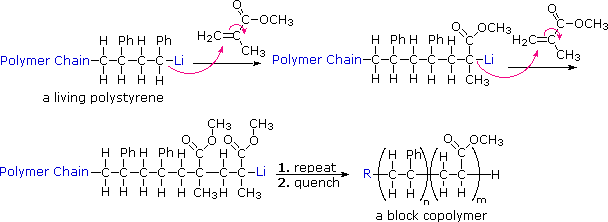Polymers in Building And Construction: Stronger, Lighter in weight, and More Sturdy
Polymers in Building And Construction: Stronger, Lighter in weight, and More Sturdy
Blog Article
Checking Out the Varied Applications and Benefits of Polymers in Different Industries
Polymers, with their diverse variety of residential or commercial properties and performances, have become indispensable in different industries, each reaping one-of-a-kind take advantage of their application. Polymers. From boosting safety and efficiency in the automobile industry to reinventing medical tools in the medical care market, polymers play a pivotal duty. Additionally, their eco-friendly nature is altering the landscape of sustainability practices. As we dive into the midsts of polymers in electronics, we discover sophisticated advancements, while their architectural honesty transforms the world of construction and framework. The pervasive influence of polymers across sectors is a testament to their adaptability and flexibility, shaping the future of many industries.
Automotive Sector Applications
Polymers play a crucial role in enhancing the performance and durability of different elements within the vehicle industry. These versatile materials are thoroughly used in the production of different parts, ranging from interior elements to under-the-hood applications. One popular use polymers in the automotive sector remains in the manufacturing of lightweight parts. By changing conventional steel parts with polymer-based choices, automobiles can attain improved fuel efficiency without jeopardizing on stamina or safety and security.

Medical Care Market Benefits
In numerous healthcare applications, the advantages of utilizing polymers are commonly identified for their varied variety of helpful homes. Polymers play a vital duty in the medical care market due to their adaptability, biocompatibility, and cost-effectiveness. One of the main benefits of polymers in healthcare is their capacity to be customized to specific needs, such as adaptability, resilience, and biodegradability, making them optimal for a vast array of clinical applications.
Polymer-based materials are extensively used in clinical tools, such as catheters, implants, prosthetics, and medication distribution systems, due to their biocompatibility and capability to mimic natural cells. These materials can decrease the threat of sensitive responses or rejections, improving individual security and outcomes. In addition, polymers are light-weight, making them suitable for wearable clinical tools and guaranteeing patient comfort.
Furthermore, polymers enable the growth of ingenious treatment techniques, such as hydrogels for tissue design and nanocomposites for targeted medicine distribution. Their ease of handling and sterilization makes them necessary for preserving high criteria of health in medical care settings. In general, the diverse advantages of polymers add substantially to innovations in clinical innovation and person treatment.
Ecological Advantages of Polymers

Furthermore, polymers can add to power savings because of their light-weight nature. In industries such as transportation, light-weight polymer materials can aid lower gas intake and greenhouse gas exhausts. In addition, polymers can make it possible for the development of energy-efficient products such as insulation products that improve power preservation in structures.
Moreover, polymers play a critical function in decreasing water air pollution. For example, using polymer-based purification systems can properly remove contaminants and pollutants from wastewater, protecting water resources and ecological communities. Generally, the ecological advantages of polymers make them useful assets in advertising sustainability and green techniques throughout various sectors.
Polymers in Electronic Devices and Modern Technology
Taking into consideration the raising need for cutting-edge and sustainable options in modern-day industries, the assimilation of innovative polymer innovations in the world of electronic devices and modern technology has become a critical technique for driving performance and efficiency. Polymers have actually changed the electronics sector by making it possible for the manufacturing of lighter, a lot more versatile, and durable electronic visit site gadgets. From mobile phones to medical tools, polymers play an essential duty in enhancing item design and performance.
One substantial advantage of polymers in electronic devices is their shielding buildings, which assist safeguard delicate electronic elements from environmental factors and electric disturbance. Furthermore, polymers are crucial in the development of flexible displays, wearable technology, and published electronic devices, using countless opportunities for producing wise and interconnected tools.
Additionally, the use of polymers in electronic product packaging has actually brought about advancements in miniaturization and thermal administration, enhancing the general performance and dependability of digital systems. As innovation continues to develop, the adaptability and adaptability of polymers will undoubtedly drive better technology in the electronic devices industry, forming the future of modern technology.
Duty of Polymers in Building and Framework
Polymers supply many advantages in the building market due to their versatility, resilience, and cost-effectiveness. One vital function of polymers in building is their use in finishes and sealants, providing protection versus ecological factors such as wetness, UV radiation, and corrosion.
Moreover, polymers play a vital duty in lasting building methods by allowing the advancement of energy-efficient structures. Shielding products made from polymers help control interior temperatures, lowering the need for home heating and cooling down systems and eventually decreasing power intake - Polymers.
Final Thought
In final thought, polymers play a crucial function in various markets such as auto, medical care, environmental, electronics, and building. Their flexible residential properties make them useful in producing innovative options and products. From enhancing gas efficiency in cars to improving medical devices, polymers provide numerous advantages. Furthermore, their effect on reducing waste and advertising sustainability highlights their value in contemporary applications. The extensive use of polymers shows their considerable contribution to advancing innovation and boosting quality of life.
Report this page